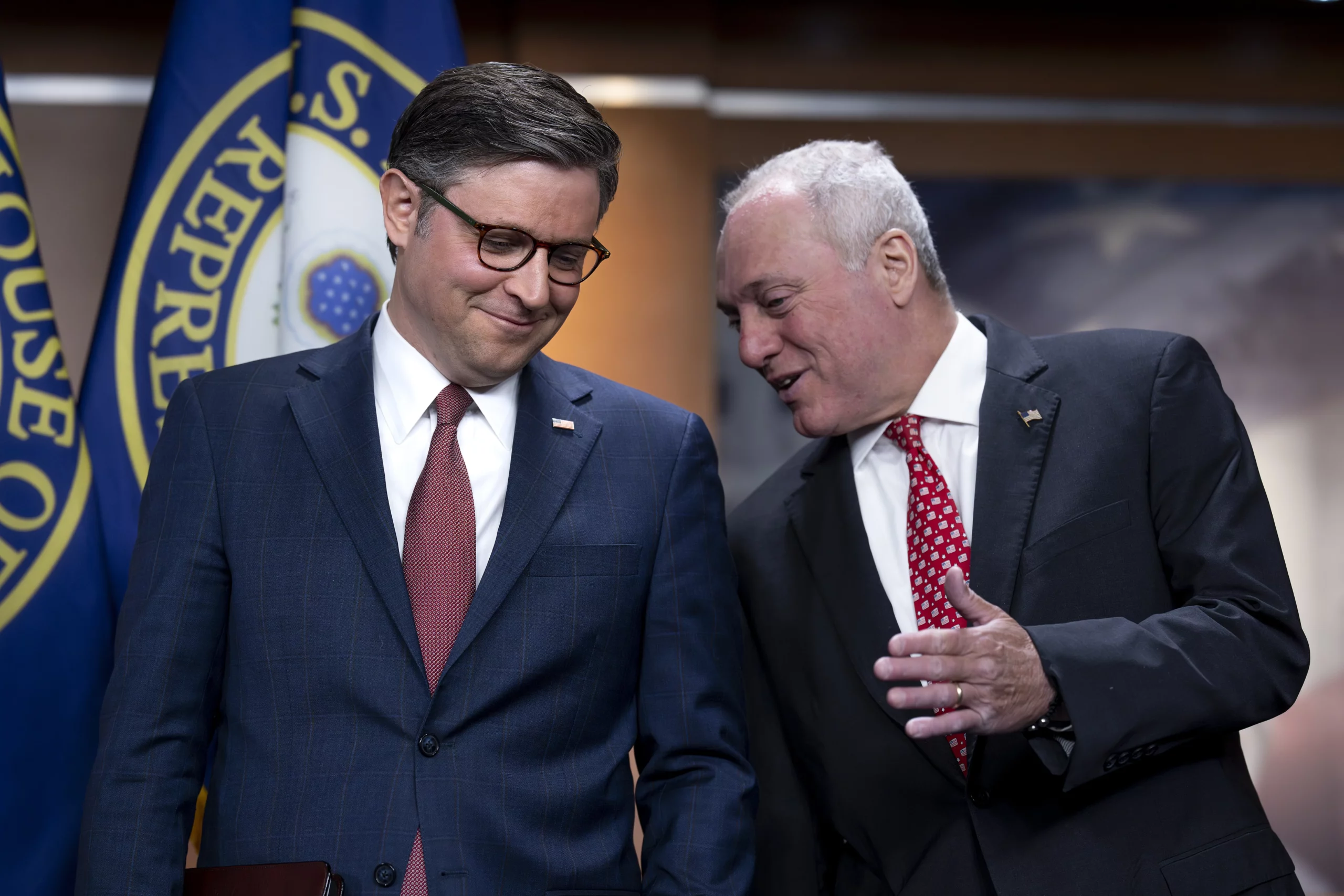

House Republicans running in competitive races are expressing concerns with GOP leaders’ plans to push through a stopgap funding bill that would attach a proof-of-citizenship voting bill even at the risk of temporarily shutting down the federal government.
Speaker Mike Johnson (R-LA) unveiled his plan for government spending on a conference call with House Republicans on Wednesday, which would extend the funding deadline for fiscal 2025 until next year. The six-month extension would also attach the SAVE Act, a bill negotiated by Johnson and former President Donald Trump that would require proof of citizenship for voter registration — a policy rider that is likely dead on arrival in the Democratic-led Senate.
Johnson told lawmakers he wants to vote on the spending legislation “as soon as possible,” a lawmaker on the call told the Washington Examiner, possibly teeing it up for a vote as early as next week. House leaders are expected to begin whipping support for the bill when lawmakers return to Capitol Hill on Monday, another lawmaker said.
However, the proposal is not being met with unanimous support among Republicans, particularly from those facing tough reelection bids in toss-up districts. Even if the spending bill does make it through the House, some lawmakers predict it will be returned by the Senate as a clean extension of 2024 spending levels with no policy riders attached.
That clean continuing resolution, they countered, might be the only way to avoid a government shutdown — a crucial move to defend Republican seats in Democratic-leaning districts.
“I think we are in hand-to-hand combat politics, and some of those in cubicles making decisions, they’ve never been in hand-to-hand combat,” one House Republican told the Washington Examiner. “We cannot shut down.”
Republicans have a four-seat majority in the House, holding 220 seats compared to Democrats’ 211. With all 435 seats up for grabs in November, only 42 considered are considered to be competitive.
Of those competitive seats, 17 are held by Republicans in districts that voted for President Joe Biden in 2020, compared to just five Democrats who must defend their seats in districts carried by Trump. As a result, many of those Republicans will likely want to spend the final months of the 2024 cycle on the campaign trail rather than elongating a government spending fight.
The proposal to delay a government spending deal until next year comes as Johnson has faced pressure from those on his right flank to “use our leverage” to ensure Democrats cannot use Biden’s final months in a lame-duck period to push through a massive spending bill that advances the party’s agenda. Instead, the group wants to delay the process until next year after they hope Trump is sworn in for a second term.
But that could be easier said than done for Johnson. Several of his most hard-line members in the House GOP caucus are threatening to vote against a final spending deal if the SAVE Act is not attached.
That could put him in a position to depend on Democratic votes to help him pass a clean CR that could pass the Senate and get signed by the president to keep the government running. It is reminiscent of last year’s spending fight when then-Speaker Kevin McCarthy (R-CA) advanced a clean spending deal with Democratic support, leading to his ouster just weeks later.
House leaders initially planned to pass all 12 of their appropriations bills before adjourning in late July, an ambitious goal they failed to meet due to intraparty disagreement. Instead, the House only managed to pass five, with the others either failing on the floor or being pulled from consideration because of a lack of support.
CLICK HERE TO READ MORE FROM THE WASHINGTON EXAMINER
Meanwhile, the Senate has not passed any of the bills, largely acknowledging the spending fight will rest in the hands of the next administration. Even so, House Democrats have largely blamed Republicans for the lack of a finalized budget.
“Just like last year, House Republicans’ refusal to meet House Democrats at the table has left us without time to pass all 12 bills before the end of September,” House Appropriations Committee ranking member Rosa DeLauro (D-CT) told the Washington Examiner. “We need a continuing resolution because House Republicans let their most extreme members drive the ship. Let us hope they do not drive us straight to a Republican shutdown.”






